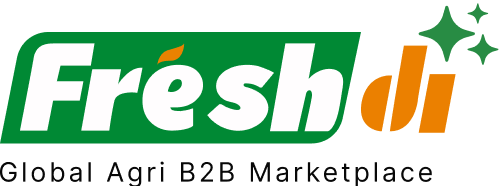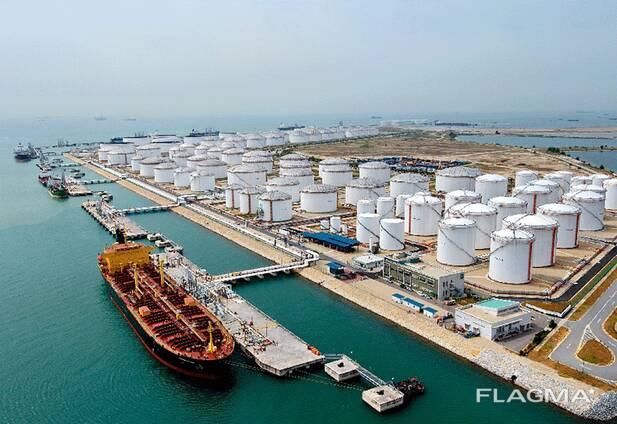Introduction – Germany’s Coffee Bean Market in Statistical Focus
Let’s kick things off with a hot cup of stats. Germany is no small player when it comes to the global coffee scene. In fact, it’s one of the top coffee importers and re-exporters in the world. While Germany doesn’t grow coffee beans locally (thanks to its climate), it’s a powerhouse in roasting, processing, and distributing coffee across Europe and beyond.
With millions of kilos of coffee beans flowing through German ports annually, the country has established itself as a central hub in the international coffee trade. This means if you’re a buyer or business looking to import high-quality coffee beans, Germany is a goldmine of options.
But here’s the catch: not every supplier is equal. That’s why taking a data-driven approach to supplier selection isn’t just smart—it’s essential. Platforms like Freshdi make it easier to dive into export data, supplier credentials, and real-time RFQ (Request for Quote) trends to help you make informed decisions.
Deep Dive – Key Production, Export Statistics & Market Signals
Even though Germany doesn’t cultivate coffee, it plays a crucial role in the coffee supply chain. Coffee beans—primarily from Brazil, Vietnam, Ethiopia, and Colombia—arrive here green and raw. They are then roasted, packaged, and exported to neighboring European countries.
According to trade insights (and Freshdi’s RFQ trends), Arabica and Robusta beans dominate the import volumes. Germany imports over 1.1 million tons of green coffee annually, making it the largest coffee importer in Europe.
Export-wise, Germany ships roasted and instant coffee products to France, Poland, the Netherlands, and even as far as Japan and the U.S. Freshdi data shows that RFQ volumes for Arabica beans and instant coffee have surged over the past year, signaling growing buyer interest, particularly in the specialty and organic segments.
What does this mean for you as a buyer? It means the demand is shifting toward quality and traceability, and suppliers who meet these expectations are thriving.
Top 7 Verified Coffee Bean Suppliers in Germany – Proven Export Performers
We’ve filtered through the noise and selected suppliers that are not only active exporters but also have stellar reputations backed by verified buyer reviews and certifications listed on Freshdi. These are names you can trust.
1. HANSE MARITIME GMBH
- Specializes in premium instant coffee and 100% Arabica beans.
- Known for distributing top-tier brands like Illy.
- Strong footprint in the EU and Asia.
- Consistent export performance with top customer ratings.
2. RUPERT LINDER GMBH
- Offers private label and OEM coffee bean packaging.
- Focus on high-quality Vietnamese Arabica and Robusta beans.
- Certified for sustainability and organic processing.
- Excellent for businesses looking for white-label solutions.
3. Evergreen Import
- Specializes in importing high-altitude Kenyan green coffee beans.
- Strong presence in specialty coffee segments.
- Supplies to artisan roasters and boutique cafes across Europe.
- Well-reviewed for bean consistency and supplier transparency.
4. Global Trade DE GmbH
- Focuses on green coffee beans from Latin America and Africa.
- Offers bulk export options for commercial roasters.
- Flexible MOQs and strong logistics support.
- Leverages Freshdi’s RFQ system for seamless buyer engagement.
5. Coffee World GmbH
- A veteran in the German coffee trade scene.
- Specializes in roasted blends and single-origin beans.
- Supplies to major hotel chains and gourmet retailers.
- Known for innovation in flavor profiling and roasting techniques.
6. Kaffeehaus-Schümli GmbH
- Artisan roaster with a focus on small-batch gourmet coffee.
- Offers direct trade beans with full traceability.
- Ideal for buyers in the premium and organic niche.
- Frequently featured in barista competitions and cupping events.
7. Bohnen Kontor GmbH
- A reliable bulk supplier of organic and Fairtrade-certified beans.
- Works closely with cooperatives in Central and South America.
- Excellent after-sales support and flexible delivery options.
- Popular with large-scale distributors and supermarkets.
Dynamic Ranking Note
Keep in mind that supplier rankings can shift based on recent export activity, buyer reviews, and new certifications. Platforms like Freshdi update these rankings regularly with dynamic insights such as “Top Supplier of the Month” or “Fastest Growing Exporter,” helping buyers stay ahead of trends.
Market Navigation – Statistical Trends, Pricing Analysis & Export Dynamics
The coffee bean market is far from static—it’s constantly brewing with change. Let’s break it down.
Demand Patterns: Arabica continues to dominate due to its milder flavor and lower caffeine content. However, Robusta is gaining traction in markets that prefer a stronger kick or lower cost base. According to RFQs on Freshdi, there’s increasing demand for specialty beans like Ethiopian Yirgacheffe and Guatemalan Huehuetenango.
Seasonal Pricing: Prices for coffee beans typically spike during Q3 and Q4, aligned with global festive seasons and colder weather in the Northern Hemisphere. Smart buyers track historical pricing data using Freshdi’s market analytics to optimize their procurement cycles.
Export Dynamics: Germany’s central location in Europe, combined with its advanced logistics infrastructure and roasting expertise, makes it a strategic gateway for both importing green beans and exporting finished coffee products.
Certifications Matter: More buyers are looking for Fairtrade, Rainforest Alliance, and organic certifications. Suppliers that carry these are seeing more RFQs and repeated orders.
Conclusion – Leveraging Data for Informed Procurement
Germany might not grow coffee, but it sure knows how to handle it. From green bean imports to roasted gourmet blends, Germany is a global coffee heavyweight. If you’re sourcing coffee beans, the country offers a wide variety of trustworthy, high-performing suppliers.
To make the most of this market, don’t just go with your gut—go with the data. Look at export volumes, buyer feedback, certifications, and market trends. Platforms like Freshdi are your best ally here, offering real-time RFQs, supplier verification, and insights into who’s really delivering value.
Key Takeaways
- Germany is a global leader in coffee bean imports and exports.
- There’s rising demand for traceable, certified, and specialty beans.
- Supplier selection should be based on verified data, not just price.
- Freshdi helps buyers identify top suppliers with dynamic rankings and trade insights.
- Timing your purchases around seasonal trends can lead to major cost savings.
Themed Checklist for Coffee Bean Buyers
✅ Identify your bean preference (Arabica, Robusta, blend).
✅ Define your MOQ and delivery timeline.
✅ Check supplier certifications (Organic, Fairtrade, etc.).
✅ Use Freshdi to compare RFQ trends and supplier reviews.
✅ Time your purchase to avoid peak-season price spikes.
Future Outlook – Where Is the Market Heading?
The future of Germany’s coffee bean industry is leaning hard into sustainability, specialty, and digital traceability. Buyers are smarter, and suppliers are getting more transparent. As ESG (Environmental, Social, and Governance) compliance becomes a bigger deal, expect more suppliers to showcase their ethical sourcing credentials.
Digital platforms like Freshdi will play a central role in connecting global buyers with verified suppliers, using AI-powered insights and real-time trade data to shape smarter, faster purchasing decisions.
FAQs
1. Why is Germany such a big player in the coffee bean market if it doesn’t grow coffee?
Germany imports green beans, processes them through roasting and packaging, and then exports finished products. Its central location and infrastructure make it a trade hub.
2. What’s the difference between Arabica and Robusta?
Arabica is smoother, sweeter, and has less caffeine. Robusta is stronger, more bitter, and typically cheaper. The choice depends on your market and flavor preferences.
3. How can I verify if a coffee supplier is legit?
Use platforms like Freshdi to check supplier certifications, buyer reviews, RFQ history, and export records.
4. What certifications should I look for when buying coffee beans?
Fairtrade, Organic, Rainforest Alliance, and UTZ are common. These indicate sustainable and ethical sourcing.
5. Are prices stable throughout the year?
Nope. Prices usually spike during Q3 and Q4. Use Freshdi’s market tools to monitor trends and plan purchases strategically.
References
Placeholder for references from trade databases, industry reports, and Freshdi insights.





